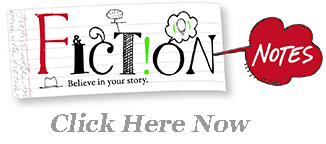

By: Rebecca,
on 1/4/2010
Blog: OUPblog
( Login to Add to MyJacketFlap)
JacketFlap tags:
Economics, Law, Business, Politics, shopping, holiday, A-Featured, online, tax, economy, Edward Zelinsky, Amazon laws, internet sales, Add a tag

By Edward Zelinsky
As a critical element of the holiday shopping season of 2009, internet sales have matured into a pivotal part of the American economy. The modest, but important, increase in 2009 holiday sales over the 2008 shopping season is largely attributable to increased online purchases.
This emergence of internet sales highlights an important problem of public finance which, so far, Congress has been unwilling to address: Most internet purchases are effectively sales tax-free even as equivalent purchases at traditional brick-and-mortar stores are taxable. The resulting discrepancy is neither fair nor efficient as conventional merchants, required to collect sales tax from their customers, find themselves unfairly competing with internet sellers who do not.
The legal cause of this discrepancy is the decision of the U.S. Supreme Court in Quill Corporation v. North Dakota. In that case, the Court held that a state, on its own, can only impose sales tax collection responsibilities on a seller with a physical presence in that state. However, Congress, the Quill Court stated, can require out-of-state sellers to collect state sales taxes from their mail order and internet customers. So far, Congress has been unwilling to impose this general sales tax collection responsibility on internet sellers.
As a matter of law, if sales tax is not collected by an internet (or mail order) seller, the customer must himself pay tax on his purchases to the state in which he lives. In practice, the states can rarely enforce this legal obligation to pay sales tax since the states must rely on customers to self-report their internet purchases. Unsurprisingly, compliance with this taxpaying obligation is not high.
The upshot is an unacceptable situation in which firms with physical facilities in a particular state must collect sales taxes from their customers in that state while the burgeoning internet retail sector sells the same and equivalent goods sales effectively tax-free.
Given the dependence of most state governments on sales tax revenue, the de facto tax-free nature of most internet sales is an enormous problem for state budgets, already reeling from the economic effects of the Great Recession. Now it turns out that the modest resurgence of consumer sales in 2009 and, with luck, in 2010 will not produce an equivalent recovery of state sales tax revenues since much of that resurgence is attributable to internet sales on which the states effectively collect little or no sales tax.
The states have been aware of this problem for some time and have been lobbying Congress for federal legislation to require internet and mail order sellers to collect state sales taxes from their customers. As yet, however, Congress has not responded to these entreaties. Recently, several states, in particular New York, Rhode Island and North Carolina, unilaterally enacted so-called “Amazon Laws,” designed to force internet retailers (of which Amazom.com is most prominent) to collect sales taxes by virtue of such retailers’ “associates programs” in those states. However, the efficacy of these laws is doubtful, not least because Amazon.com and other internet sellers can respond to such laws by terminating their associates programs in the states adopting these sales tax collection laws.
Moreover, the fiscal straits of the states are likely to get worse as the Congress and the Obama administration appear determined, as part of federal health care legislation, to impose upon the states new unfunded mandates in the form of expanded Medicaid outlays.
All of these factors

By: Darcy Pattison,
on 7/27/2009
Blog: Darcy Pattison's Revision Notes
( Login to Add to MyJacketFlap)
JacketFlap tags:
digital, paper, online, write, how to, 32 pages, free form, Picture book, picture books, printing, Add a tag
The 33 page picture book
No, there are no 33-page picture books. Not yet.
At a recent conference, though, I had a discussion about why picture books are usually 32 pages. One person suggested that some famous picture book author should come out with a 33-page picture book, and then the industry would print it.
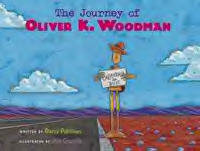
Uh, no. It really does have to do with the way paper folds and how much can be printed on existing printing presses.
So, the response was that when picture books go digital it won’t matter. That’s right: online, page counts can be anything you want.
But I argued that the 32-page picture book has developed into a certain literary form, much like the 14 line sonnet form for poetry. Yes, of course, writers of digital picture books can choose to write free verse; but they may also choose to write in the 32-page format.
We don’t know if or when the majority of picture books will change to digital versions. But it’s still worth studying and mastering the 32-page format because it will teach a lot about selecting events and details for a picture book, about language that works in a picture book, about planning for kids to chime in, about making it read-aloud friendly, and much more. The 32-page format won’t be completely abandoned even when (or if) digital picture books become the norm.
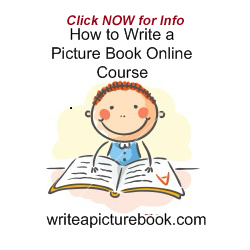
Related posts: - Picture Books: Those Confusing 32 Pages
- Picture book standards: 32 pages
- Documenting Nonfiction


By: Rebecca,
on 7/20/2009
Blog: OUPblog
( Login to Add to MyJacketFlap)
JacketFlap tags:
editor, tips, Reference, editing, Science, Oxford, A-Featured, Medical Mondays, A-Editor's Picks, Online Resources, online, AMA, Brenda Gregoline, JAMA, Manual of Style, Add a tag

Brenda Gregoline, ELS, manages the copyediting team for 5 of the Archives Journals, and is a member of the committee that writes and updates the AMA Manual of Style. She is a member of the Council of Science Editors and has worked in scientific publishing for nearly 15 years. The AMA Manual of Style is the ultimate go to resource for writing corrections and clarifications as well as ethical standards in medical and scientific publishing, and it is now available online. In this 3-part series, Gregoline reports on the most frequent mistakes authors make when submitting manuscripts to JAMA and the Archives Journals, and lets us in on what drives copyeditors crazy. Be sure to check back on Monday for the next two weeks for part two and three of this post.
Publishing a new edition of a style manual, particularly a lengthy, detailed manual that covers a ridiculous amount of technical material (Hello, AMA Manual of Style!), is a grueling process. In our case, it involved 10 people meeting for at least an hour every week for more than a year, where we tried not to get into arguments about grammar, usage, and the presentation of scientific data. After the meetings there would usually be flurries of e-mails about grammar, usage, and the presentation of scientific data. Then we’d all go home and dream about grammar, usage, and the presentation of scientific data. You get the picture.
My point is that the writers of style manuals are often a little, shall we say, too close to the material. In the case of the AMA Manual of Style, we are all editors as well—and it can be hard for us not to roll our eyes when we run into the same problems on manuscript after manuscript. Come on, authors: there’s a whole book on this stuff!
Which, of course, is precisely the problem. There is a whole THOUSAND-PAGE book that tries to encompass all aspects of medical editing. It’s impossible to expect authors to absorb all the information–they’re just trying to get published, and it’s our job to help them. Here, in classic top-10-list reverse order, are the top 10 editorial problems we see in our submitted and accepted manuscripts, compiled by committee and editorialized upon by me. If any authors happen to read this, maybe it will help them avoid the most common errors; if any journal Web site–design people read it, maybe they can grab some ideas for more explicit user interface; and if any copy editors read it, maybe they can enjoy shaking their heads in wry commiseration.
10. Missing or incomplete author forms. Most journals require authors to fill out some forms, usually involving things like copyright transfer, an assertion of responsibility for authorship, and so on. These forms are often filled out incorrectly or incompletely. Following a form’s instructions as to signatures and boxes to check can save significant amounts of time in the publication process.
9. Not explaining “behind the scenes” stuff. Values in a table don’t add up—oh, it’s because of rounding. The curve in this figure doesn’t connect the values listed in the “Results” section—oh, we used data smoothing. This kind of thing can be easily explained in a footnote, but many authors forget to do so because it seems so obvious to them.
8. Making life difficult for the copy editor. Authors and editors have the same goal: a polished, published, accurate manuscript. Sure-fire ways authors can ruin what should be a pleasant working relationship are to suggest that the copy editor is making changes in the manuscript for no reason; calling the copy editor to discuss changes without having read the edited manuscript first (this wastes OODLES of time); and not reading the cover letter that comes with the edited manuscript. This last is particularly charming when the author then calls the copy editor to ask all the questions that are very nicely answered in said cover letter.
Authors and aspiring authors: stay tuned for 7 more!

I have been an internet marketer for three solid years and I have never met anyone who gives away so much valuable, FREE information and help. If you can’t succeed here you might as well sell your computer.

By the way, it’s Saturday and rainy here in Texas. If you are like me and in the mood to surf the internet for neat and helpful sites, check out my brand new blog, Mad Mrs. Com, and also my blog about, of all things, Tennis Rackets!
Posted in making money online Tagged: free, make money, marlon sanders, online, success      

By: Michelle,
on 4/13/2009
Blog: OUPblog
( Login to Add to MyJacketFlap)
JacketFlap tags:
library week, scavenger hunt, onling, ORO, Oxford Reference, Library, quiz, History, Reference, Education, Current Events, oxford, A-Featured, Online Resources, online, World History, week, Add a tag
Justyna Zajac, Publicity
In honor of National Library Week 2009, OUP will be posting everyday to demonstrate our immense love of libraries. Libraries don’t just house thousands of fascinating books, they are also stunning works of architecture, havens of creativity for communities and venues for free and engaging programs. So please, make sure to check back in all this week and spread the library love.
To kick off Library Week, OUP is providing everyone with free access to Oxford Reference Online (ORO) and to encourage you to check out we have provided the scavenger hunt below. Use ORO to find the answers. Let us know what you found out in the comments. Just go here and log in with user: nationallibraryweek and password: oxford. Let the games begin! Be sure to visit again this afternoon when we post the answers.
1. Who was the founder of the Junto Club, predecessor to the Library Company of Philadelphia, created in 1731 and considered to be America’s first public library?
2. What 18th century English poet said, “The greatest part of a writer’s time is spent in reading, in order to write: a man will turn over half a library to make one book?
3. The library of the Supreme Court of the United States was created by a congressional act in what year?
4. Who was named the first librarian of Congress in 1802?
5. In what city is the Newberry Library located?
6. The Arthur and Elizabeth Schlesinger Library on the History of Women in America began at what academic institution?
7. Under which pope was the Vatican Library established in 1450?
8. The largest research library in Ireland is located at what university?
9. The manuscript division of the Library of Congress in Washington, D.C houses White House papers and documents of all Presidents from George Washington through which president?
10. Name two of the three individuals whose private collections formed the basis for the British Museum and Library, founded in 1753.


I want to teach new writers the basics of good English and the rules of proper writing. There are far too many mistakes in articles online and I have made it my personal mission to change that, one writer at a time.
So I have created a private forum where I am teaching newbie writers to write professional articles. I work with members on a daily basis, editing their work, explaining in depth how a professional article should be written, supplying writers with links to information that will help them be a better writer. I also offer advice on where to submit articles for pay and for article marketing, and where to find jobs writing online.
Along with helping you become a writer, or a better writer, I teach newbies Internet Marketing, affiliate marketing, SEO, etc, so that they can succeed online.
This private forum has two ways to join: Either pay $10 a month through Paypal or AlertPay, or, if you can’t afford the membership, you can become a member a couple of other ways. I have a plan that will allow you to become a member and maintain your monthly membership for free.
Another thing is that I will be giving away free ebooks, PLR articles, tools, and systems for making money online. I have a stock pile of 100s of these that I have either bought or downloaded, and a couple of times a week I will be passing them along to my forum members.
Send an email to [email protected] if you are interested in joining. Membership is by invitation only, so I need to speak with you first.
Posted in Tagged: articles, editing, free, internet marketing, money, online, writing      

By: Rebecca,
on 7/30/2008
Blog: OUPblog
( Login to Add to MyJacketFlap)
JacketFlap tags:
reading, Reference, publishing, A-Featured, A-Editor's Picks, Online Resources, Oxford University Press, oed, online, oup, Casper Grathwohl, Add a tag
Today we are excited to post an interview with Casper Grathwohl, Oxford’s Reference Publisher, in which he answers some frequently asked questions. Hopefully his answers with give you a glimpse inside the reference publishing world.
Casper Grathwohl is Vice President and Publisher of Reference at Oxford University Press. In his 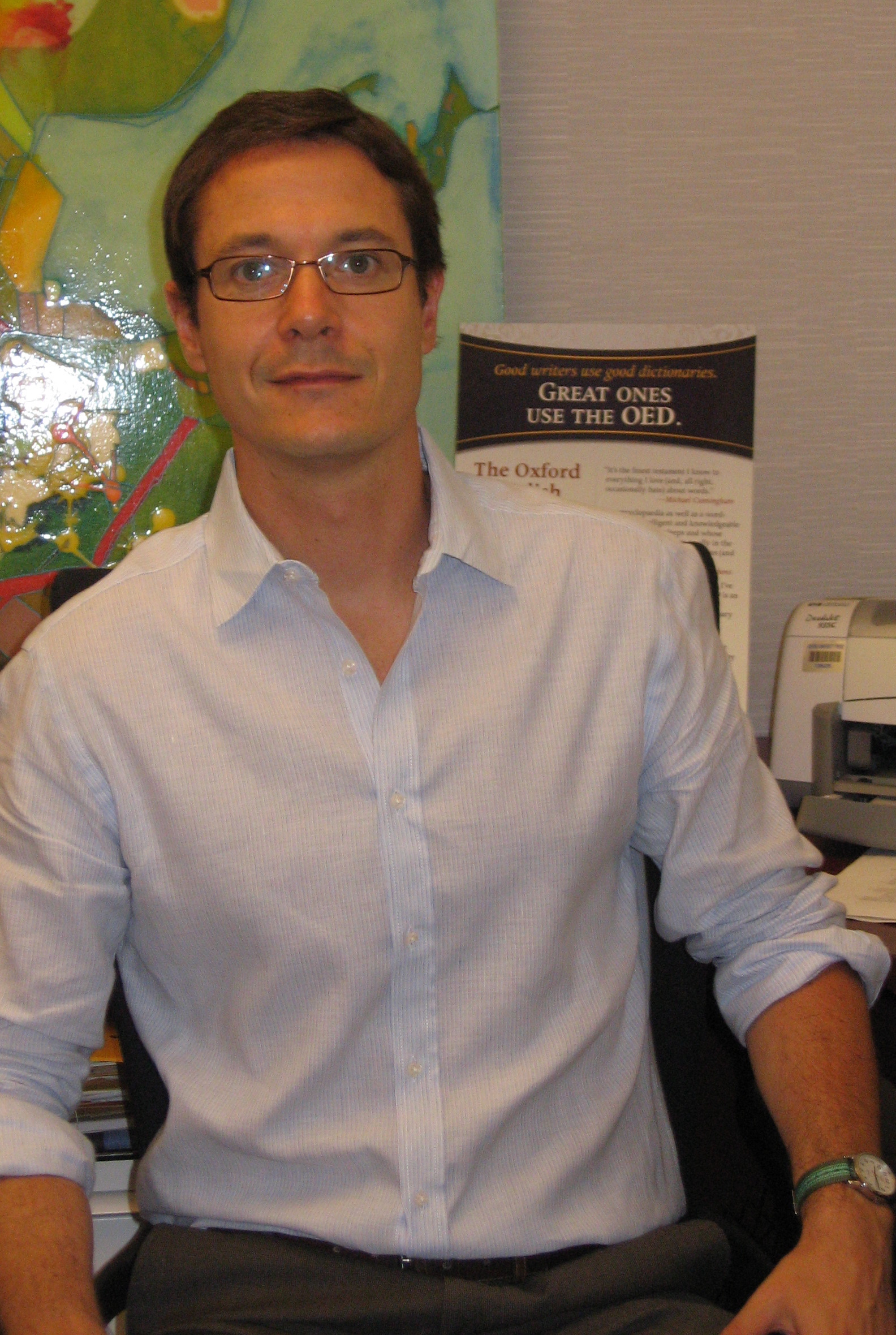 10 years at the press, Casper has helped transform Oxford’s print dictionary and reference list into one of the leading online academic publishing programs in the world. Electronic initiatives within the Oxford program have included moving trusted copyrights online (Grove Dictionaries of Music and Art, Oxford Dictionary of National Biography, Oxford Reference Online, and The Oxford English Dictionary) as well as building innovative new research tools such as Oxford Language Dictionaries Online and Oxford Islamic Studies Online. Prior to OUP, Casper worked for both Princeton University Press and Columbia University Press. He currently splits his time between New York and Oxford in England managing the two reference centers of the press. 10 years at the press, Casper has helped transform Oxford’s print dictionary and reference list into one of the leading online academic publishing programs in the world. Electronic initiatives within the Oxford program have included moving trusted copyrights online (Grove Dictionaries of Music and Art, Oxford Dictionary of National Biography, Oxford Reference Online, and The Oxford English Dictionary) as well as building innovative new research tools such as Oxford Language Dictionaries Online and Oxford Islamic Studies Online. Prior to OUP, Casper worked for both Princeton University Press and Columbia University Press. He currently splits his time between New York and Oxford in England managing the two reference centers of the press.
1. What online resources do you daily and weekly?
I’m a big New York Times online fan. I made the switch from print to online a few years ago for my weekday news and it was a surprisingly easy transition. It’s funny—all these habitual activities we feel define us on a daily level (like reading the paper in the morning with a cup of coffee) are much more mutable than we think. I still like a lazy hour or two with the print paper on the weekends, but I can’t imagine reading an article that interests me and not being instantly able to surf for more on the topic, or follow the editorially-driven links provided.
Over the last couple of months I’ve really gotten into Street Easy. I’m in the process of buying an apartment in NY and one of my friends recommended I use it for information on comparable purchases in the building, sales history of the apartment and other stats. Most of the real estate listings in the city feed into the site, so it’s the one-stop shop that makes this kind of searching so much easier. And its functionality is highly intuitive—I’ve learned a lot about how to set up a really satisfying landing page from them.
These aggregator sites like Streeteasy are really interesting in that they serve the big and the small pretty equally. When the playing field gets leveled that way “large” loses one of its traditional advantages. I grew up in one of those small towns that had an empty downtown shopping area. All retail had moved out to the chain stores in malls and the local paper was filled with op-ed pieces regularly bemoaning the death of the American town and small businesses. And now look, twenty years later, organic butter infused with peaches from a small farm in Enigma, Georgia has a larger customer base online than it ever had before. (So large, in fact, that in 2004 it closed the “Berry Barn” located along Hwy 82 to focus on selling online.)
I love how online commerce has been such a shot in the arm to these types of mom-and-pop shops. As others have noted, the small independent stores that thrive are the ones that have a niche. They have a value proposition that we don’t associate (and will never want to) with big chains. Local peach butter from a Georgia farm? I’d take that over a new Parket margarine flavor any day! That’s their competitive edge, and with online commerce models anyone can find them. It’s this globalization of the local that I find so interesting. As I said, I’m not pointing out anything new here, I’m just having a great time watching it all happen.
What are you reading?
I just finished Joe O’Neill’s Netherland, which I loved. The plot and pacing are a little weak at times, but he’s such a lyrical writer that it’s easy to forgive. Every once in a while I’d come to a paragraph describing a subway station at rush hour or the way the sun hits Manhattan’s midtown and I’d swoon at how simply and perfectly he captured something I see everyday (and will always see a little differently from now on.)
What is your favorite reference work?
Such a hard question! I live knee-deep in the world of reference so it’s difficult to see it with any real perspective. I’m a big fan of reference-based online experiments, like the Encyclopedia of Life and the Stanford Encyclopedia of Philosophy, (which has proved to be a very successful, although not easily duplicated, experiment.) It’s sites like these that are the signposts to where scholarly communication is heading, and I find the energy these sites create really invigorating.
What do you think of Wikipedia?
I get this question a lot, and I think wikipedia is great. And I’m a little disappointed by all the complaints about how unreliable it is as a source. Of course it’s unreliable—quick, cheap information has never been anything but! In my circles I feel like there’s this myth that before user-generated web content everyone slavishly referred to trusted reference authorities for their quick information. If only. What did you do if you needed a quick answer to something in the pre-wikipedia dark ages? Nine out of ten times you’d call a friend or ask a colleague before pulling Britannica off your shelf. Was that more reliable? Absolutely not. But that’s OK, because you’d know not to site one of your friends in the bibliography of your research paper. I think if we start thinking of wikipedia as the equivalent of calling up one of your smart friends and getting a “good enough” answer (which is often all you’re looking for) then we’re on the road to responsibly understanding the awesome power of such user-generated resources.
As the web matures, it has come to reflect an image as complex and rich as culture itself. And therefore it should not surprise anyone that multiple layers of authority on the web are not just necessary, they are inevitable and already expanding. Wikipedia, Citizendium, Britannica, and Oxford Scholarship Online all complement each other as distinct, valuable places along the web knowledge chain.
And speaking of that web knowledge chain (not to go on a rant here)—we need to start making the distinction between information and knowledge. I would define knowledge most simply as “information in context.” Information is just a byte of something with a fact label attached. But what does that information mean? That’s knowledge.
For example, a 13-year-old obsessed with baseball statistics is a fine source for number of RBI’s or home runs Jackie Robinson had. Considering some of the boys I knew growing up, there might not be a more trusted source of such information. But you wouldn’t go to that 13-year-old and ask them to tell you about the significance of Jackie Robinson to the civil rights movement. That would be silly. Yet that’s what we do too often on the internet.
How did you get started in publishing?
Like most people I just fell into it. I liked books and was naïve enough to think that it qualified me for a job in publishing. I started out in publishing at the bookstore end of things: I worked in the buying office at Rizzoli in New York. I remember getting fed up because I was earning $16,000 a year (everyone my age trying to make it in NY was in the same boat, but I somehow failed to notice that) so I quit without another job. Bumming around New York for a summer after that was fun, but I was getting really tired of living on slices of pizza so I moved to Princeton to work as a typesetter at Princeton University Press. After a few years I became an editor and then moved back to New York to take a job editing the Columbia Gazetteer of the World. I love geography and had a great time with it. When that ended (I think it was 1997) I came to Oxford to work in the Children’s and Young Adult group and I’ve been here ever since. And I’ve got to say that I love OUP—the institution, the mission to disseminate knowledge, reinventing scholarly publishing online, all of it. And getting to be the keeper of the great Victorian publishing projects like the Oxford English Dictionary, Grove Music, and the Oxford Dictionary of National Biography is a privilege that regularly humbles me when I think about. How often do you get say something as lucky as that?
ShareThis
I've been on email lists and had a basic website for many years. A couple of years ago, though, I got a professionally designed website, and I started blogging (then as part of wordygirls). I am so grateful for the chance to connect with other writers and readers. The cheers when I have success and virtual hugs and "hang in there"s when I meet failure are immensely comforting. I have learned about the business of writing and I have made friends. I have participated in Robert's Snow and the Cybils. I have even moved a fair amount of work online, as I've begun teaching online writing classes this year.
But I've also become a bit overwhelmed.
Ever since I became more connected (waaaaaay more connected), I've gotten numerous emails from people I don't know. Some are nice, some want help, others just want to reach out and connect with another children's writer or poet. I've also suddenly found a week flying by and realizing, Shoot, I haven't visited that bulletin board I was going to stay on top of in three weeks! I have fallen a bit behind in my blog reading. I don't have time to take advantage of all the wonderful resources that are out there. I have emails from strangers or even acquaintances that pile up for weeks (or even--yikes--months) before I have a chance to respond.
I'm responsible for my fair share of the family budget, and children's writing is my career. It's not an easy one, but I love it and wouldn't trade it. But I work nonstop pretty much all day, often multi-tasking and putting in a little extra time on evenings and weekends. I'm glad to have work! But I have a lot of it, especially this last year or so!
My question is (you knew I'd get to a question eventually, didn't you?): How do you decide how to spend your time online? I don't mean actual writing/researching time. I mean social networking time. Are you guys on blogs as well as bulletin boards? FlapJacket (I'm there, but I rarely participate)? Email lists? How much time a day or week do you think you spend on keeping up with these connections? Any tips?
I don't want to cut myself off! But I do need to find a better balance. I'm trying to figure out if it's better to lightly participate in many things, or if I should just choose a couple of outlets to call my online home. Help!
 Some people have the opportunity to understand the children’s book industry from several sides. Some people have the opportunity to understand the children’s book industry from several sides.
Mark speaks with Anna Olswanger about being both a children’s book author and a literary agent, and how to capture your own story.
Books mentioned:
Participate in the conversation by leaving a comment on this interview, or send an email to [email protected].
Tags: Anna Olswanger, childrens books, Shlemiel CrooksAnna Olswanger, childrens books, Shlemiel Crooks
|




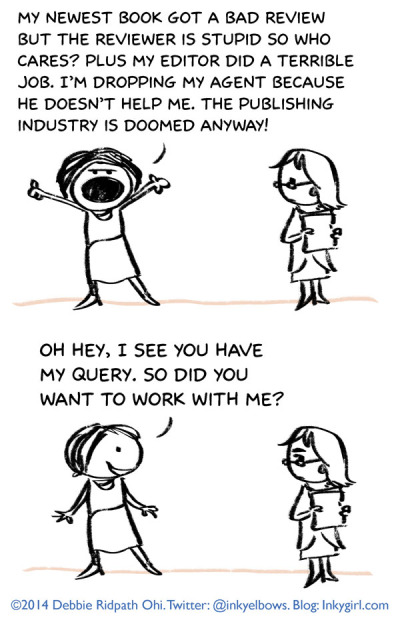


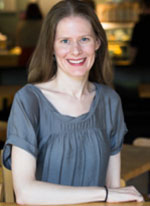

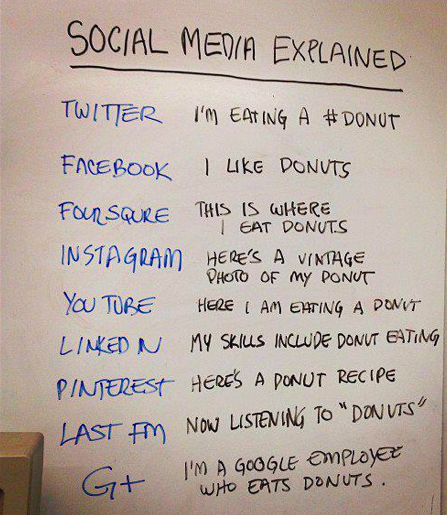


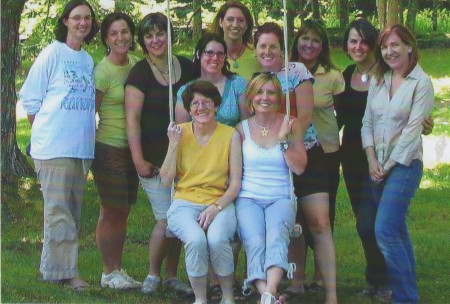

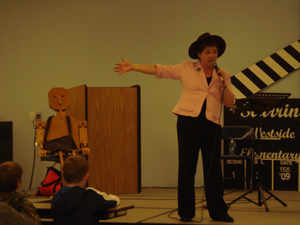









 Some people have the opportunity to understand the children’s book industry from several sides.
Some people have the opportunity to understand the children’s book industry from several sides.
From a Facebook friend:
The woman with the rare heart disease that fooled the Doctors. She was declared dead and buried alive. Her daughter had placed Mom’s Lap Top in her casket before the burial as an “afterlife” memento. Two days later the daughter began to get emails from her Mom. “WTF!?”
WOW!